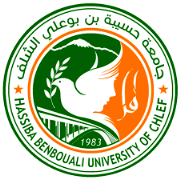Conceptualizing Creativity in the Realm of Literary Translation
DOI:
https://doi.org/10.70204/jlt.v5i1.461Keywords:
Creativity, translator, literary translation, subjective imprintAbstract
This research aims to define the term 'creativity' in the translation of literary texts and to highlight how it differs from other terms that might describe the process undertaken by the translator when transferring a literary text into a target culture. The nature of the theoretical study, with all its components, required following an analytical approach based on three essential elements: deconstruction, evaluation, and synthesis. The researcher begins by deconstructing the concept, which involves interpreting and analyzing its components in detail. Next, the researcher moves to evaluation, where the components are critiqued and assessed. Finally, in the synthesis stage, the researcher draws final conclusions based on the analysis and critique. Through these three steps, a comprehensive understanding of the term 'creativity' is achieved, aiming to provide an integrated perspective. The results of the research were reflected in adopting the term 'creativity' instead of any other Arabic term to describe the process that allows the translator to produce an original text that carries their personal imprint. The research concluded by highlighting the distinction between translating literary texts and translating other types of texts, noting that, due to the creative process, literary translation remains impervious to the capabilities of artificial intelligence tools.













